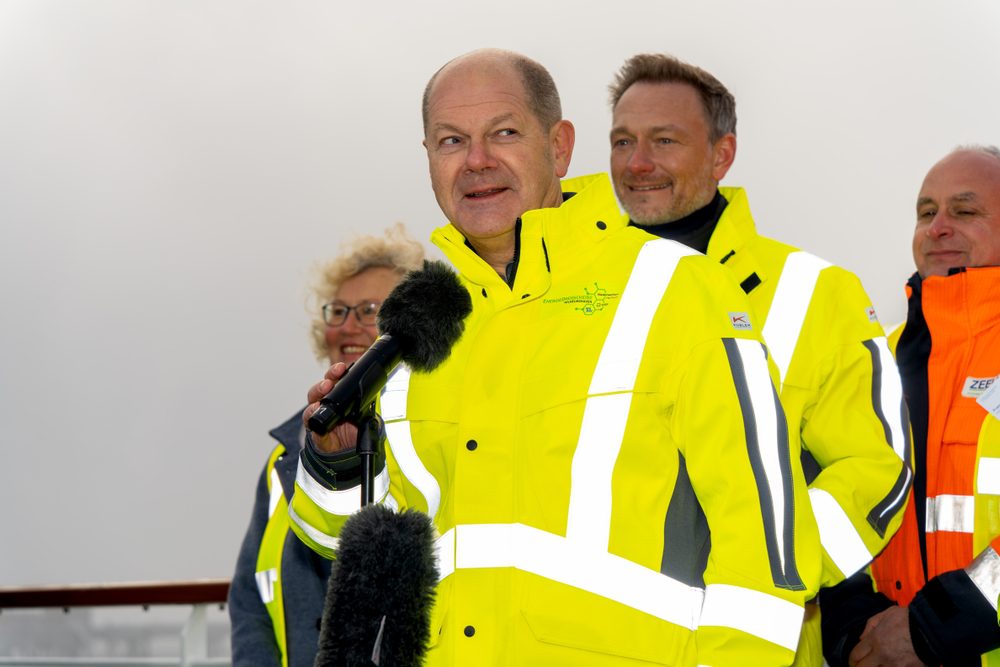
The first of five planned German LNG terminals opened in Wilhelmshaven on Saturday, December 17th. The terminals are intended to help make Germany independent from Russian gas deliveries.
The new terminal is not a permanent installation but consists of a landing bridge and a ‘swimming terminal’—the ship Höegh Esperanza, a special Floating Storage and Regasification Unit (FSRU) on lease from Norway. The ship is capable of taking liquid natural gas from tankers and converting it to normal gas on board. The gas delivered at the terminal is expected to cover around 6% of Germany’s annual demand.
German Federal Chancellor Olaf Scholz, who officially opened the terminal, said it would help Germany on its way towards “independence from Russian pipelines.” He especially lauded the speed at which the new terminal was constructed in only ten months. “This is the new Germany speed, with which we will continue to develop our infrastructure,” Scholz announced proudly.
But not everyone is as enamored with the new terminal. Environmental organizations criticized the fact that existing environmental guidelines were ignored during the construction of the terminal. While the environmental non-profit organization Umwelthilfe admitted that securing energy supplies is important right now, it criticized the creation of overcapacities with the construction of so many LNG terminals and may consider taking legal steps against the construction and use of the terminals.
The environmental impact is also the reason why LNG terminals have not been constructed earlier. In August 2020, Olaf Scholz, then still Minister of Finance under Angela Merkel, prepared an offer to strike a deal with Donald Trump to buy LNG from the United States. Two permanent terminals in Wilhelmshaven and Brunsbüttel were then scheduled to be built for a total of € 1 billion but environmental organizations blocked the construction. Two years later, the rushed construction of the temporary terminals is expected to cost € 6,6 billion. The largest part of the cost is rent for the FSRU ships.
This, however, did not deter Olaf Scholz from referring to the opening of the terminal as a “good day for Germany.” Minister of Economy Robert Habeck (Greens) was also present at the opening and said that the new terminal was “an important step towards German security of supply.” The Federal Association of German Industry, however, warned that it is of the highest importance to continue the expansion of infrastructure at a high speed. The president of the association, Siegfried Russwurm, also renewed his call to Germans to continue saving gas over the course of winter.
